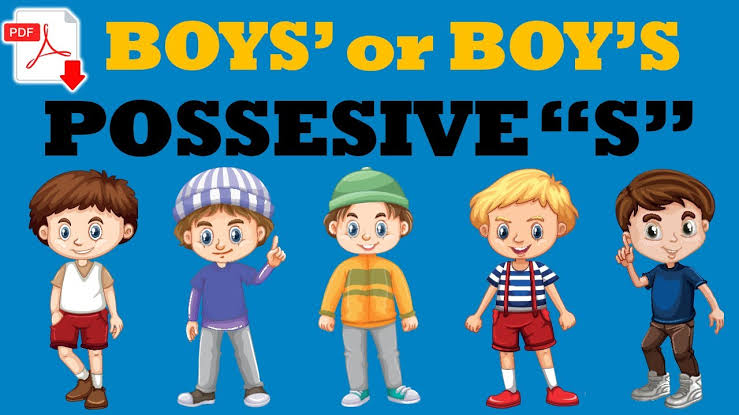Possessives
An apostrophe is used in a possessive form, like Esther’s family or Janet’s cigarettes, and this is the use of the apostrophe which causes most of the trouble. The basic rule is simple enough: a possessive form is spelled with ‘s at the end. Hence:
Lisa’s essay
England’s navy
my brother’s girlfriend
Wittgenstein’s last book
children’s shoes
women’s clothing
the aircraft’s black box
somebody’s umbrella
a week’s work
my money’s worth
There are three types of exception.
- First, a plural noun which already ends in s takes only a following apostrophe:
- the girls’ excitement
- my parents’ wedding
- both players’ injuries
- the Klingons’ attack
- the ladies’ room
- two weeks’ work
This is reasonable. We don’t pronounce these words with two esses, and so we don’t write two esses: nobody says *the girls’s excitement. But note that plurals that don’t end in s take the ordinary form: see the cases of children and women above.
2. Second, a name ending in s takes only an apostrophe if the possessive form is not pronounced with an extra s. Hence:
- Socrates’ philosophy
- Saint Saens’ music
- Ulysses’ companions
- Aristophanes’ plays
Same reason: we don’t say *Ulysses’s companions, and so we don’t write the extra s.
3. The final class of exceptions is pronouns. Note the following:
- He lost his book.
- Which seats are ours?
- The bull lowered its head.
- Whose are these spectacles?
Note in particular the spelling of possessive its. This word never takes an apostrophe:
*The bull lowered it’s head.





